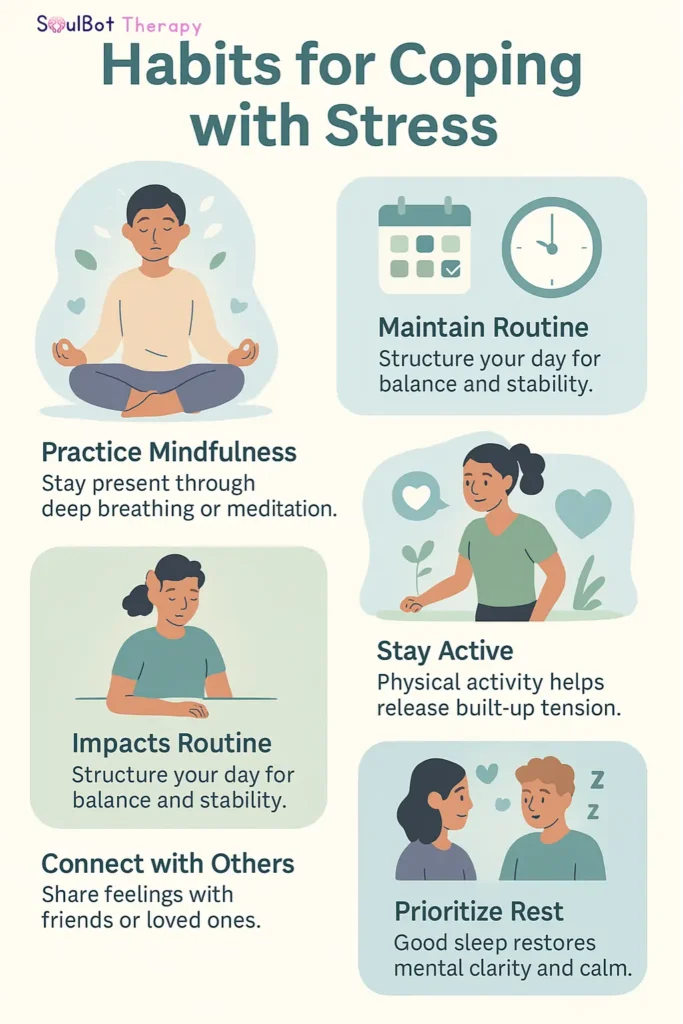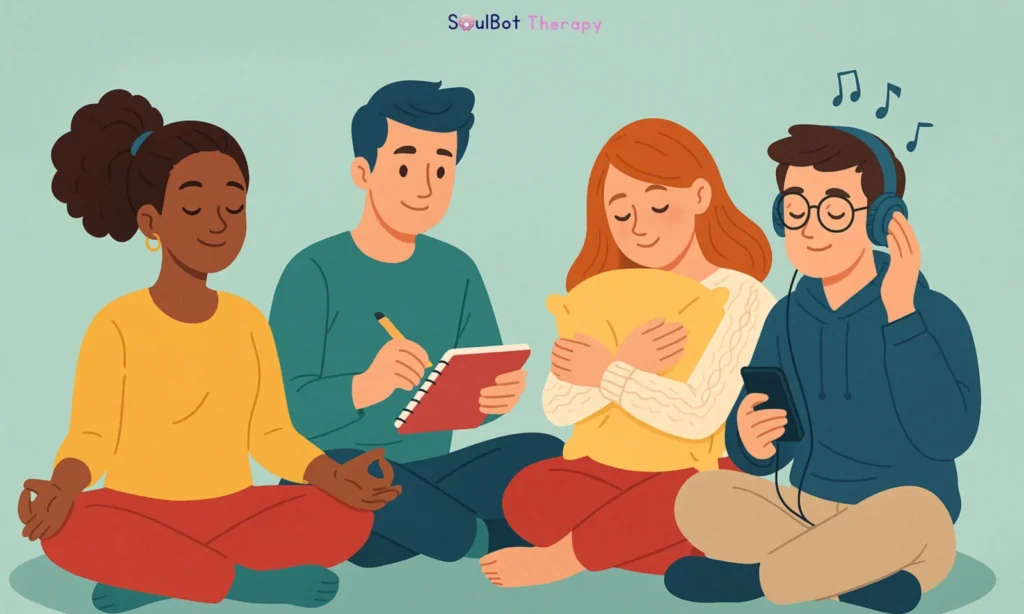Life throws curveballs, such as stressful jobs, relationship struggles, or just the weight of constant notifications. Emotional well-being isn’t something you fix once; it’s built daily through healthy coping mechanisms. These skills aren’t about escaping reality, but about learning to handle it with balance and resilience.
What Are Healthy Coping Mechanisms?
At their core, healthy coping mechanisms help you manage stress and regulate emotions without harming your physical or mental health. Unlike avoidance (doomscrolling, overeating, or shutting down), these mechanisms build long-term resilience.
👉 Examples include: mindfulness practices, journaling, physical movement, deep breathing, social support, and setting digital boundaries.
📊 SoulFact: According to the APA, problem-focused coping (like creating action plans) and emotion-focused coping (like practising mindfulness) are effective ways to handle stress when used appropriately.
How Do Coping Skills Improve Mental Health?
Your body and mind adapt better to challenges when consistently practising healthy coping mechanisms. Stress hormones lower, emotional stability improves, and your nervous system becomes less reactive. Over time, these skills protect against anxiety, depression, and burnout.
What Are the Best Daily Mindfulness Practices for Stress Relief?
Daily mindfulness practices are a cornerstone of emotional regulation. Even five minutes of intentional breathing or guided meditation can quiet the mental chatter.
✅ Try this:
- Begin mornings with 2–3 minutes of breathwork.
- Pause midday for mindful body scans.
- End your day with gratitude journaling.
📊 SoulFact: Research from the NIH shows that mindfulness reduces stress and improves immune response and emotional regulation.

Which Habits for Mental Health Build Long-Term Resilience?
Some habits for mental health are simple but powerful:
- Consistent sleep hygiene (7–9 hours)
- Balanced diet with mood-boosting foods
- Social connection, even short check-ins with friends
- Movement—walking, yoga, or strength training
These habits may feel small, but stacked together, they’re protective shields for your mental health.
💡 Related SoulBot Read: Micro-Mindfulness: Little Moments, Big PeaceHow Do Emotional Resilience Skills Help You Handle Setbacks?
Emotional resilience skills involve bouncing back instead of breaking down. Consider it mental flexibility: You can bend under pressure without snapping.
Ways to strengthen resilience include:
- Reframing negative thoughts
- Practising self-compassion during failure
- Building a “coping toolbox” of activities that restore calm
Over time, these skills make stressful events less overwhelming and more manageable.
Can Small Daily Changes Transform Your Emotional Well-Being?
Yes, because consistency beats intensity. It’s not about a two-hour meditation retreat once a year; it’s about those small, daily choices that accumulate into stability. Healthy coping is a practice, not a one-time fix.
🔑 Final Thought
Healthy coping mechanisms aren’t quick hacks they’re the foundation of emotional well-being. You can transform stress into growth with simple habits, daily mindfulness practices, and emotional resilience skills. Remember, consistency matters more than perfection.
💬 Need daily support? Chat with SoulBot, your AI mental health coach, for coping reminders and self-care guidance.







